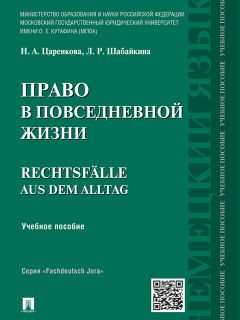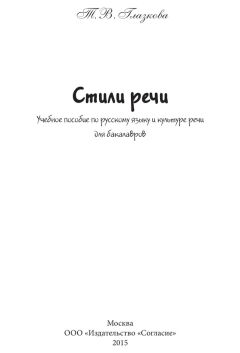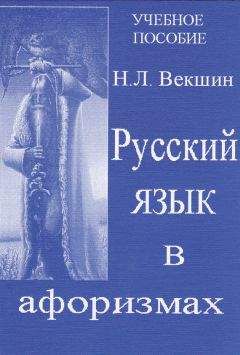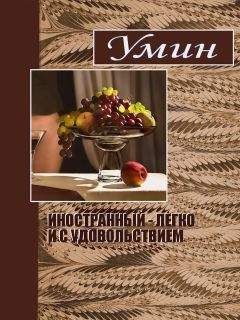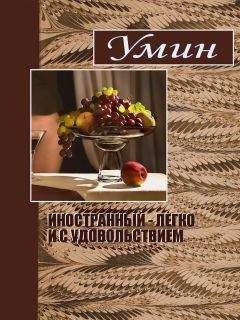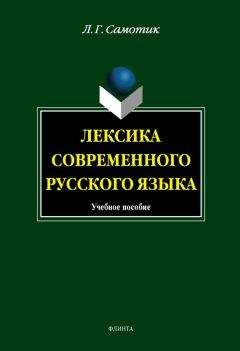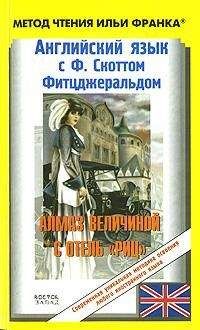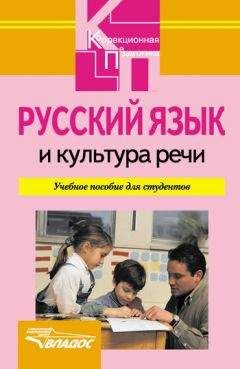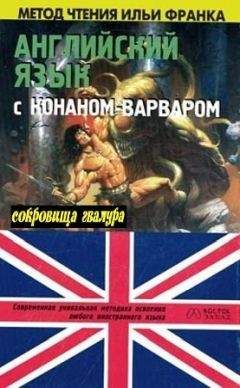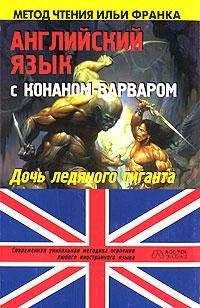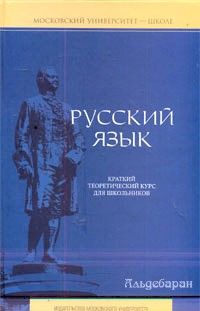Татьяна Бочкарева - Английский язык
Все авторские права соблюдены. Напишите нам, если Вы не согласны.
Описание книги "Английский язык"
Описание и краткое содержание "Английский язык" читать бесплатно онлайн.
Учебное пособие состоит из 4 разделов, каждый из которых предназначен для самостоятельного изучения материала учебного модуля по дисциплине «Иностранный язык».
Juvenile prisons: prisons for juveniles (people under 17 or 18, depending on the jurisdiction) are known as young offender institutes or similar designation and hold minors who have been remanded into custody or serving sentence. Many countries have their own age of criminal responsibility in which children are deemed legally responsible for their actions for a crime.
Military prisons: these prisons form part of military systems, and are used variously to house prisoners of war, unlawful combatants, those whose freedom is deemed a national security risk by military or civilian authorities, and members of the military found guilty of a serious crime.
Political prisons: certain countries maintain or have in the past had a system of political prisons; arguably the gulags associated with Stalinism are best known. The definition of what is and is not a political crime and a political prison is, of course, highly controversial.
Psychiatric prisons: some psychiatric facilities have characteristics of prisons, especially when confining patients who have committed a crime and are considered dangerous. In addition, many prisons have psychiatric units dedicated to housing offenders diagnosed with a wide variety of mental disorders.
1.4.3 Переведите следующие слова и выражения на русский язык:
1.4.4 Прочитайте следующие утверждения и укажите, являются ли они верными:
1) Prisons are conventional institutions which form part of the administrative justice system of a country.
2) A criminal defendant may not be held in prison while awaiting a trial verdict.
3) Prisons may not be used for internment of those not charged with a crime.
4) Male and female prisoners are typically kept in separate prisons.
5) Prison accommodation is often divided into wings.
6) All prisons have a remotely controlled doors, CCTV monitoring, alarms, cages, restraints, nonlethal and lethal weapons.
7) Minor offenders’ prisons hold minors who have been remanded into custody or serving sentence.
8) Military prisons form part of criminal system, and are used variously to house prisoners of war.
9) Some psychiatric facilities have characteristics of prisons, confining patients who have committed a crime and are considered dangerous.
10) All prisons have psychiatric units dedicated to housing offenders diagnosed with a wide variety of mental disorders.
1.4.5 Переведите текст со словарем.
1.4.6 Составьте 10 вопросов к тексту.
1.4.7 Выберите ключевые предложения, перескажите текст, используя выражения: «The subject of the text is…», «The text deals…», «The main idea of the text is…», «The author comments on …».
2 Краткий грамматический справочник с тренировочными упражнениями
2.1 Артикль
Артикль – служебное слово в английском языке. Употребляется перед существительным и поясняет его. Если перед существительным стоит определяющее слова или слова, то артикль ставится перед всеми определениями. В русском языке артиклей нет и они, как правило, не переводятся на русский язык.1
В английском языке всего три артикля: “a”, “an” и “the”.
Два типа артиклей:
‒ неопределенный (indefinite) – “a” и “an”;
‒ определенный (definite) – “the”.
Вам необходимо также знать, в каких случаях артикль не употребляется.
Неопределенный артикль – a/an произошел от слова «один», и поэтому употребляется только с исчисляемыми существительными в единственном числе. Употребляется в разговоре о предмете, который упоминается впервые, либо не все собеседники знают, о чем речь. А также для обозначения принадлежности предмета к какому-либо классу предметов.
Определенный артикль – “the” произошел от слова «этот» и употребляется с разными существительными. Ставится в тех случаях, когда упоминается предмет или понятие, уже известное собеседникам.
Артикли относятся к существительному, но если перед существительным стоят определения, то артикль ставиться перед всеми определениями.
Артикль может быть заменен местоимением:
‒ определенный – указательными местоимениями this, that;
‒ неопределенный – местоимением some.
Примеры
1 a pen – (неопределенная) ручка;
2 the pen – (определенная) ручка.
Неопределенный артикль не употребляется с существительными во множественном числе:
Пример – a book – books.
2.1.1 Упражнения для самостоятельной работы2.1.1.1 Дополните предложения артиклями a/an, the.
1) We usually have … lunch at 1 p.m.
2) … French people drink a lot of red wine.
3) I gave her … bunch of flowers when she opened the door.
4) Who is … owner of this car?
5) We went to … zoo and saw … old elephant.
6) I've never taught … class where … pupils were so good at … English.
7) The giraffe is … tallest animal on … Earth. I like … giraffes.
8) … water freezes after … hour if you leave it out in … garden at … night.
2.1.1.2 Выберите правильный вариант:
1) Catherine loves cats/the cats.
2) Look at cats/the cats. They are chasing a bird.
3) I don't like coffee/the coffee, but I like tea/the tea.
4) You cut the cake/cake and I'll pour coffee/the coffee.
5) Life/The life will be very different in the future.
6) Life/The life of a mayfly is extremely short.
7) I enjoy swimming/the swimming in the sea.
8) Children/The children usually like playing games.
9) Children/The children have gone to the park.
10) All people/the people in this room are my relative.
11) All people/the people should have freedom of speech.
12) Villages/The villages in this part of the country are very beautiful.
13) Breakfast/The breakfast is the most important meal of day/the day.
14) Paul was only/the only person who remembered me.
15) In Stone Age/the Stone Age, people lived in caves.
16) I would like to travel to Spain/the Spain.
17) We travelled to London by train/the train.
18) He is learning to play flute/the flute.
2.1.1.3 Вставьте артикль, где необходимо.
1. This is … clock. 2. This is … Kiev. 3. … Kiev is … big city. 4. Mary is … girl. 5. She is … my sister. 6. This is … room. 7. Is … newspaper in … bag? 8. She is in … room. 9. Is … teacher in … classroom? 10. Is … your room large? 11. Is … pen in … bag? 12. Are you … students? 13. My friend has … children. 14. … sportsmen are always in good form. 15. … children we saw in … street are schoolboys. 16. She lives in … 1st street.
2.1.1.4 Вставьте артикль, где необходимо.
1. This is … book. It is my … book. 2. Is this your … pencil? – No, it isn't my … pencil, it is my sister's … pencil. 3. I have … sister. My … sister is … engineer. My sister's … husband is … doctor. 4. I have no … handbag. 5. Is this … watch? – No, it isn't … watch, it's … pen. 6. This … pen is good, and that … pen is bad. 7. I can see … pencil on your … table, but I can see no … paper. 8. Give me … chair, please. 9. They have … dog and two … cats. 10. I have … spoon in my … plate, but I have no … soup in it.
2.1.1.5 Вставьте артикль, где необходимо.
1. This is … tree. … tree is green. 2. I can see three … boys. … boys are playing. 3. I have … bicycle. … bicycle is black. My … friend has no … bicycle. 4. Our … room is large. 5. We wrote … dictation yesterday. … dictation was long. 6. She has two … daughters and one … son. Her … son is … pupil. 7. My … brother's … friend has no … dog. 8. This … pencil is broken. Give me that … pencil, please. 9. She has … ball. … ball is … big. 10. I got … letter from my … friend yesterday. … letter was interesting.
2.1.1.6 Вставьте артикль, где необходимо.
1. This is … pen. … pen is red. 2. These are pencils. … pencils are black. 3. This is … soup. … soup is tasty. 4. In the morning I eat … sandwich and drink … tea. 5. She gave me … coffee and … cake. … coffee was hot. … cake was tasty. 6. Do you like … ice-cream? 7. I see … book in your … hand. Is … book interesting? 8. She bought… meat, … butter and … potatoes yesterday. She also bought … cake. … cake was very … tasty. We ate … cake with … tea. 9. This is my … table. On … table I have … book, two … pencils, … pen and … paper. 10. This is … bag. … bag is brown. It is my sister's … bag. And this is my … bag. It is … yellow.
2.1.1.7 Вставьте артикль, где необходимо.
1. I have two … sisters. My … sisters are … students. 2. We are at … home. 3. My … brother is not at … home, he is at … school. 4. My … mother is at … work. She is … doctor. 5. I am not … doctor. 6. I have no'… sister. 7. He is not … pilot. 8. I have thirty-two … teeth. 9. He has … child. 10. She has two … children. Her children are at … school. 11. Is your father at … home? – No, he is at … work. 12. Where is your … brother? – He is at … home.
2.1.1.8 Вставьте артикль, где необходимо.
1. We have … large … family. 2. My granny often tells us … long … interesting .. stories. 3. My … father is … engineer. He works at … factory. … factory is large. 4. My … mother is … doctor. She works at … large … hospital. She is at … work now. 5. My … aunt is … teacher. She works at … school. … school is good. My … aunt is not at … school now. She is at … home. She is drinking … tea and eating … jam. … jam is sweet. I am at … home, too. I am drinking … tea and eating … sandwich. … sandwich is tasty. 6. My sister is at … school. She is … pupil. 7. My cousin has … big … black … cat. My cousin's … cat has two … kittens. … milk, too. cat likes … milk. … kittens like.
2.1.1.9 Вставьте артикль, где необходимо.
1. I am … engineer. 2. My … son is … pupil. 3. He is … good … pupil. 4. This is … house. 5. This is my … pencil. 6. You have some … pencils, but I have no … pencil. Give me … pencil, please. 7. I like your … beautiful … flower. Give me … flower, please. 8. My … mother is at … home. She is reading … interesting … book. 9. My … father is not at … home. He is at … work. He is … doctor. He is … good … doctor. He works at … hospital. … hospital is large.
2.1.1.10 Вставьте артикль, где необходимо.
1. What's … weather like today? – … weather is fine. 2. … sun is yellow. 3. … sky is grey today. 4. … earth is … planet. 5. We had … English lesson yesterday. … teacher asked me many … questions. … questions were difficult. 6. Where is your … brother? – He is at … home. He is in his … room. He is sitting at … table. He is doing his … homework. … homework is difficult. 7. Our … cat is sitting on … sofa. 8. It is very dark in … room. Turn on … light, please. 9. Nick went into … bathroom, turned on … water and washed his … hands.
2.1.1.11 Вставьте артикль, где необходимо.
At… beginning of … 19th century … little boy was born in … family of John Dickens, … clerk at … office in … Portsmouth, and was named Charles. He had … sister who was older than himself, arid there were several other children in … family. When Charles was seven, he was sent to … school. He was not… strong child. He did not like to play … cricket or … football and spent all his free time reading. In 1821 … family went to … London and little Charles left behind him … happiest years of his childhood. His father was in … money difficulties, and … family became poorer and poorer. … boy had to give up his studios. Mr. Dickens was put into … debtors' prison. Little Charles learned to know all, horrors and cruelty of … large capitalist city. He had to go to work at… blacking factory. He worked there from … morning till … night. When his father came out of prison, Charles was sent to … school for some time. Soon he got work as … clerk. Then he learned … stenography and became … reporter; in Parliament. In 1836 at… age of 24 Charles Dick1 en? published his first book. It was … collection of … stories. … title of … book was “Sketches by Boz”. There were followed by “Pickwick Papers” and “Oliver Twist” and many other famous novels. Charles Dickens is one of … greatest writers of … 19th. century. His novels are now translated into most languages of … world.
2.2 Существительное
В первую очередь это часть речи, которая обозначает предмет. Это может быть необязательно неживой предмет (table, house), но и живое существо (girl, man). Нельзя не упомянуть, что существительные бывают не только материальными, но и абстрактными.
Love, kindness, knowledge – абстрактные существительные, те, которые нельзя потрогать или положить в карман.
Также существительные английского языка делятся на исчисляемые и неисчисляемые. К исчисляемым относятся существительные, которые мы можем посчитать.
Примеры
1 I have two toys. How many toys do you have? – I have five toys (toy – toys).
2 My friends always help me with my homework (friend – friends).
Подписывайтесь на наши страницы в социальных сетях.
Будьте в курсе последних книжных новинок, комментируйте, обсуждайте. Мы ждём Вас!
Похожие книги на "Английский язык"
Книги похожие на "Английский язык" читать онлайн или скачать бесплатно полные версии.
Мы рекомендуем Вам зарегистрироваться либо войти на сайт под своим именем.
Отзывы о "Татьяна Бочкарева - Английский язык"
Отзывы читателей о книге "Английский язык", комментарии и мнения людей о произведении.






